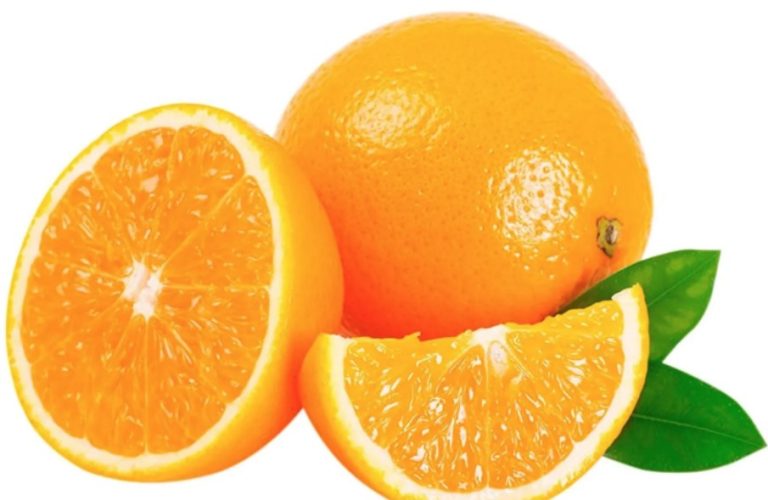Oranges are healthy and full of good ingredients. You can find out more about the refreshing vitamin bombs and their health benefits here.
Round, bright colour, sweet and juicy aroma: this is what distinguishes oranges, also called oranges in some regions. But citrus fruits are not only popular because of their taste, but also because of their large portion of nutrients and vitamins: Oranges are very healthy.
The fruits are divided into summer and winter oranges according to when they were harvested. Winter oranges in particular grow in Spain and Italy. The harvest season extends from autumn to March for early varieties and into May for late varieties. Summer oranges have a longer way to get to us, coming primarily from the USA, Israel and South Africa.
If you want to shop as regionally as possible, oranges are not the best choice. At least you can eat fruits from southern Europe in winter. Their transport routes are significantly shorter than those of summer oranges and therefore cause fewer CO2 emissions.
Healthy Oranges: Calories, Vitamins and Nutrients

Oranges are rich in vitamin C – most of you have heard of that. But the healthy oranges also contain other valuable ingredients.
Nutritional values per 100 grams of orange:
Energy: 47 kcal
Protein: 0.94g
Carbohydrates: 11.75 g
Fat: 0.12g
How many calories does an orange have?
A small orange weighs about 130 grams and has 61 kilocalories. So you can eat them as a light snack in between. Since it is very high in fiber and low in calories, it is good for losing weight. However, this does not apply to orange juice, which often contains a lot of sugar.
Vitamins and minerals per 100 grams of orange:
Vitamin C: 53.2 mg
Magnesium: 10 mg
Calcium: 40 mg
Potassium: 181 mg
With two to three oranges a day, you could already cover the recommended daily requirement of vitamin C. Vitamin C is not only important to strengthen your immune system, but also contributes to the maintenance of healthy bones and connective tissue.
Oranges also contain a good portion of magnesium, as well as some calcium. Both minerals ensure dense and stable bones and teeth.
Oranges are also a good source of potassium. Potassium is involved in the regulation of blood pressure, among other things. The World Health Organization recommends that adults with high blood pressure increase their potassium intake because it improves both systolic blood pressure (the pressure in the blood vessels when it is at its highest) and diastolic blood pressure (the pressure in the blood vessels when it is at its lowest). ) sinks.
Oranges: health effects
The juicy flesh of the orange is surrounded by a thin white skin, also called the mesocarp. It is best to eat these as well, because they contain health-promoting secondary plant substances such as flavonoids. Flavonoids are a group of antioxidants. Studies suggest they may reduce the risk of some cancers and cardiovascular disease. The white skin also contains fiber. These ensure good digestion.
Positive effect on blood values
A study suggests that an antioxidant complex in oranges called hesperidin can lower not only high blood pressure but also cholesterol levels. As part of a healthy diet, the study concludes, eating oranges can reduce the risk of cardiovascular disease.
Oranges are healthy, orange juice is healthier?
A 2015 University of Hohenheim study suggests that orange juice may be healthier than an unprocessed orange. The initiator of the study explains that the body can better absorb and utilize certain ingredients in the orange, including carotenoids and vitamin C, if the orange has been pressed beforehand. Although small amounts of these nutrients are lost during pressing, the improved availability apparently more than compensates for this effect.
However, it is important to buy direct juice from oranges and not to use orange nectar. This consists of orange juice diluted with water to which sugar has been added. In addition, you should only drink orange juice in moderation because, in addition to its healthy ingredients, it also contains a lot of sugar (eight to nine grams per 100 grams of juice).
Tip: It is best to press the orange juice yourself. It is particularly fresh and the vitamin C is retained. You also avoid packaging waste. If you still buy orange juice, look out for the Fairtrade seal.
Buy oranges: organic is better

As healthy as oranges are, something spoils their enjoyment. According to Ökotest, pesticides can be detected in every second orange. This is especially true for conventionally grown oranges. One or more particularly dangerous substances were found in almost all examined oranges from conventional cultivation – for example imazalil, an antifungal agent that is suspected of being carcinogenic. You should therefore wash oranges thoroughly before eating them.
It is even more advisable to use organic oranges when shopping. According to the Ökotest, these are not or only slightly contaminated with pesticides. In addition, organic cultivation protects the environment and does not use any chemical-synthetic pesticides in cultivation.

